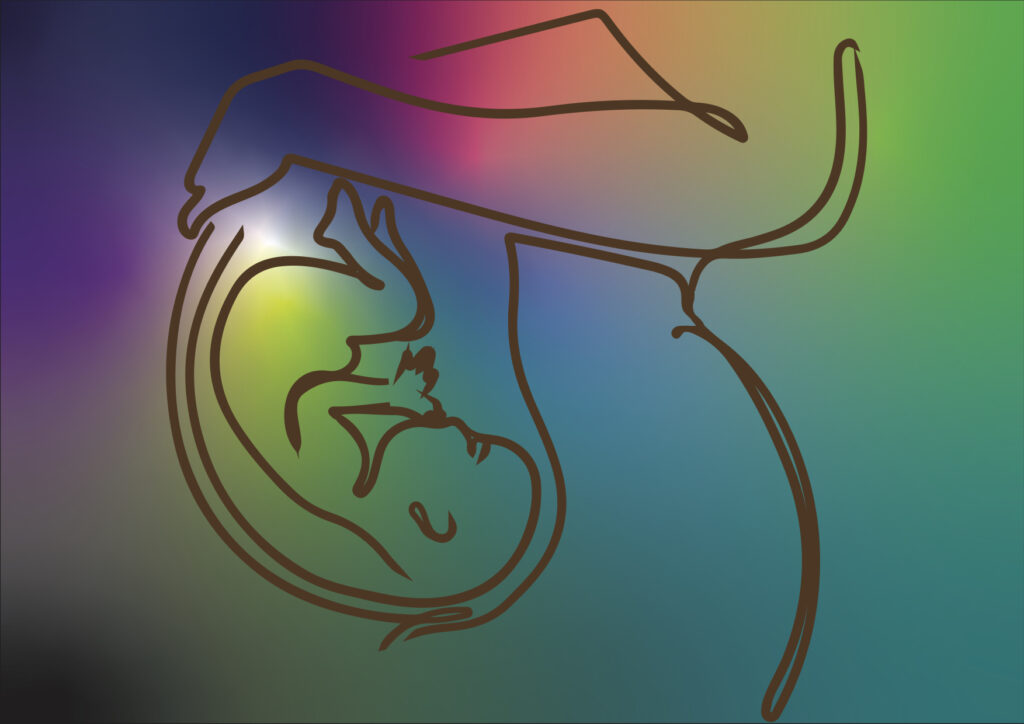Health | April 6th, 2023
The Importance of Midwives and Doulas in the Journey of Childbirth for Black Women
By: Tatyanna McCray

Saving Future Generations One Birth at a Time
Women often view motherhood as one of the most critical milestones in their lives, and in many cultures, it is one trait that makes women matriarchal.
However, despite motherhood’s joy, resulting in new life to cherish, raise, and experience life with, childbirth is a severely dangerous occasion, especially for black women.
On average, black women tend to deal with higher levels of discrimination by medical professionals that affect their health in varying ways. They are three times more likely to succumb to premature death due to improper care during the procedure of birth and throughout the pregnancy.
The lack of support, advocacy, and sincerity causes health issues and has created anxiety among black expecting mothers since their voiced concerns fall on deaf ears.
The encouragement of Midwifery and Doula support is beneficial and a positive reinforcement for black women during pregnancy and their journey into motherhood.
Born a California native with Southern roots, Psychology Professor and FAMU Alumnus Dr. Neico Slater Sa-ra shares that she has over 10 years of experience in midwifery. Sharing that she enjoys being a source of comfort for other black women during such an intricate time as childbirth.
Midwife History
According to the National Museum of African American History and Culture, midwifery practice began before the 1930s, before hospital deliveries became the norm. Midwives were essential as it was more common for women to give birth at home surrounded by loved ones, friends, and the midwife.
In addition to helping women give birth skillfully, midwives perform routine prenatal care. The popularity of doulas emerged during the 1980s to provide mothers support and comfort, physically, mentally, and emotionally throughout their birthing sessions and postpartum.
Both practices have become trend attractions in the most recent years. Homebirths, water births, birthing centers, and assisted and unassisted hospital birth rates have peaked, especially among black women. Through these practices’ women are encouraged, nurtured, and taught plentiful skills for having healthy pregnancies and better birthing experiences.
Black women are also free to be more vulnerable and connect as mothers to their wombs. If there are ever any questions regarding the legitimacy of midwives, rest assured they’re exceptional at their jobs.
Midwives attend to the needs and concerns of mother and child to ensure a safe and worthwhile birthing experience. Similarly to what hospitals do, midwives deliver babies, weigh, clean and observe them for any potential health complications.
However, one main difference is with a midwife; the mother has the luxury of a more intimate setting and birth.
“Each birth is unique and requires different techniques to support the mother during the process of birth,” Dr. Neico Slater Sa-ra said.
Costly Decisions
The services of midwives and doulas are also less costly than giving birth in a hospital. Within the medical field, the average birth cost varies based on the state.
Over the past decade, the routine of giving birth has changed, along with the cost. Another factor that causes differences is the lack of medical insurance—forcing many mothers into the compacity of little to no medical support and dangerous circumstances during their most vulnerable moments.
This has, in turn, pushed mothers into searching for birth assistance through other safe avenues. This is where the guidance of midwives and doulas comes in handy, as their services are nothing short of attentive and worthwhile.
“Did you know?”
- There are multiple ways to give birth: Vaginal, scheduled cesarean (C-section), induction, and vaginal birth after cesareans (VBAC).
- First-time mothers may experience longer labor times ranging from 12 to 24 hours.
- Waterbirth is when a baby is born via water.
- Lotus birth is the practice of leaving the umbilical cord uncut after childbirth so that the baby is attached to the placenta until it naturally separates itself within three to ten days after birth.
- Assisted birth is when tools such as forceps or a ventouse suction cup help deliver a baby.
- Unassisted birth is the process of giving birth without medical intervention.
- Induction is when a procedure prompts the uterus to contract and start labor before it does so on its own, typically done if there are possible complications with labor starting on its own.
Teamwork = safe delivery, healthy baby, happy mama
Midwives and doulas are vital to the aid of black women giving birth to provide the best care possible.
Not only are their concerns addressed, but black women can ensure their needs are met and not have to entertain the harsh reality of mortality among themselves or their babies. With the assistance of midwives and doulas, women are less likely to have C-sections, have better pain management and fewer life-altering dangers occur.
Midwives and doulas are essential in childbirth and necessary for black women as they are advocates and helpful and dedicate themselves to their craft of being a source of strength and comfort for black women.
FAMU will be hosting an event dedicated to providing exposure and informational resources to those interested in midwifery and doula on April 11th, 2023, from 6-9 p.m. on campus. Be on the lookout for further details of the location to learn more.





